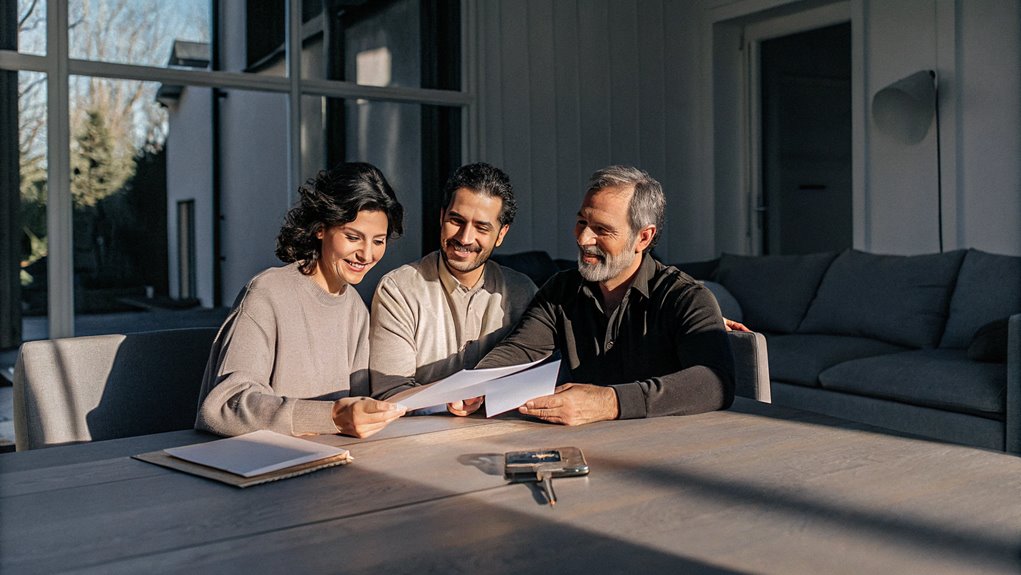Your house is a big part of what you own. You want to make sure it goes to the people you love when you die. Think of it like making a map that tells everyone what to do with your house later.
You need some simple tools to protect your home. These include a living trust, a will, and papers that let others help you. If you don't make this map, your family might have to go to court and pay extra money.
Many people forget to change their plans when big things happen in life. Some only make a will, which is not enough. The best way to help your family is to have all the right papers ready.
When you make a good plan, you help keep your home safe. You also make things easier for the people you care about most.
Protecting Your Biggest Investment

Your home is likely the biggest thing you own. Most people spend lots of money on their homes. It takes years to pay off a home and keep it in good shape.
You need a plan to protect your home for your family. This plan is called an estate plan. It helps make sure your home goes to the right people when you die.
You can use simple tools to protect your home. A will tells people who gets your home. You can also use something called a trust. A trust helps keep your plans private.
Don't forget to get home insurance too. Good insurance keeps your home safe if bad things happen.
Estate Planning Basics For Homeowners
Planning for your home's future is a lot like making sure your loved ones get a special gift. You want to keep your home safe and make sure it goes to the people you care about most.
Think of your home as a treasure. You need some simple tools to protect it:
A living trust is like a magic box. It helps your family get your home without going to court.
A will is your wish list. It tells everyone who gets what when you die.
Power of attorney lets someone you trust take care of your home if you get sick.
A transfer deed is like putting a name tag on your home. When you die, your home goes right to that person.
Joint ownership means you and your spouse both own the home. If one dies, the other keeps it.
Talk to a lawyer who knows about homes and families. They can help you pick the best way to protect your home.
Common Estate Planning Mistakes

A mistake with your house plans can hurt your family after you're gone. Many people forget to change who gets their house when big things happen in life. Some couples only put one person's name on their house papers, which can cause trouble later.
Just having a will isn't enough to protect your home and family. You need more than that to keep your loved ones from dealing with long court battles. You must also think about what taxes your family might've to pay.
Keep your house plans fresh and new. Update them when someone gets married or divorced. Do the same when babies are born or when a family member dies.
These simple steps will keep your home and family safe for years to come.
Key Documents Every Homeowner Needs
You need important papers to protect your home and keep it safe. When you have these papers ready, you can make sure your home goes to the right people.
You need:
- A Will – This tells people who gets your home after you die
- A Trust – This helps give your home to others without going to court
- Power of Attorney for Money – This lets someone you trust help with money when you can't
- Power of Attorney for Health – This lets someone you trust make health choices when you can't
- House Deed – This paper shows you own your home
Keep these papers in a safe place. Make sure your family knows where they are.
Choosing The Right Estate Plan

Planning for your family's future is a lot like packing for a big trip. You want to make sure you have all the right things in place.
Think about what you own and who you want to get it. Think about your home, your money, and the people you love. You can pick different ways to share what you have.
Many people use a living trust. This helps your family avoid long delays when you pass away. If you're married, you can own things with your spouse. This makes it easy for them to get your things when you die.
If you have kids or family members who need extra help, you can make special plans for them. You can also give some of your things to groups that help others.
Talk to a lawyer who knows about these plans. They can help you make the best choice for you and your family. Laws are different in each state, so pick someone who knows your area well.
Tax Implications and Property Transfer
When you own a home, you want to help your family pay less tax when they get your house one day.
Think of taxes like a bill from the government. You can make this bill smaller by planning ahead. The government has rules about how much your family might need to pay.
The good news is that when your family gets your house, they won't have to pay tax on how much the house went up in value while you owned it.
This helps them save money if they want to sell the house later.
Minimizing Estate Tax Burden
Estate taxes can take a big chunk out of what you leave your loved ones. Smart planning helps keep more money in your family's hands.
You can take simple steps to cut down these taxes:
Put your life insurance in a special trust. This keeps the money away from taxes.
Give some of your things to family each year. The tax office lets you give gifts up to a certain amount tax-free.
Move your home into a trust. This lets you pass it on while paying less tax.
Own things together with someone else. When you die, they get to keep it without tax.
Give to good causes you care about. This helps others and cuts your taxes at the same time.
Property Basis Step-Up Benefits
When someone you love dies and leaves you their home or property, you get a special tax break. The value of what you get is based on what it's worth when they die, not what they paid for it.
Let's say your mom bought her house for $200,000 many years ago. When she dies, the house is worth $800,000. You now own the house at the $800,000 value. If you sell it later for $850,000, you only pay tax on the $50,000 extra.
This tax break works for all kinds of property – like homes you rent out or beach houses.
To help you later, keep good records of what was paid for the property and any work done to make it better.







